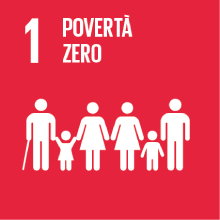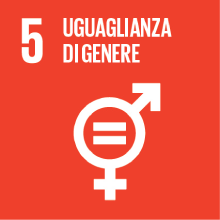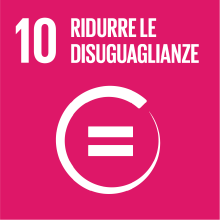HISTORY OF LATIN AMERICA
- Anno accademico
- 2020/2021 Programmi anni precedenti
- Titolo corso in inglese
- HISTORY OF LATIN AMERICA
- Codice insegnamento
- LT9014 (AF:312631 AR:177806)
- Modalità
- In presenza
- Crediti formativi universitari
- 6
- Livello laurea
- Laurea
- Settore scientifico disciplinare
- SPS/05
- Periodo
- 4° Periodo
- Anno corso
- 2
- Spazio Moodle
- Link allo spazio del corso
Inquadramento dell'insegnamento nel percorso del corso di studio
-Analyze History of Latin America in a multidisciplinary perspective able to encompass political, economic and cultural factors
-Analyze History of Latin in global perspective, namely considering the networks of cultural, economic and political relations, especially with Europe and North America
The above-mentioned three specific objectives aim to give students the instruments necessary to develop a critical view of the topics discussed and to develop an independent and multidisciplinary methodology for the analysis of historical phenomena to better understand the present.
Risultati di apprendimento attesi
- Understand the general framework of the historical analysis of Latin America
- Understand the specificity of the early modern period and its heritage
- Understand the multidisciplinary character of the historical analysis
2. Ability of applying knowledge and understanding
- Understand the general framework of the historical analysis of History of Latin America > Ability of discussing subjects related to the field (History of Latin America) in a specialized language and according to an historical methodology
- Understand the specificity of the early modern period and its heritage > Ability of pinpointing the characters of the early modern period, recognizing how they shaped contemporary Latin America, and confronting them with the following ages
- Understand the multidisciplinary global character of the historical analysis > Ability of applying the historical methodology acquired also to other fields of study (e.g. other courses, final dissertation)
3. Judgement abilities
- Ability of connecting the facts and data learnt during lessons
- Ability of organizing the course materials (lessons and readings) in a coherent interpretation
4. Communicative abilities
- Ability of presenting the issues related to the field of study using specialized language
- Ability of presenting the knowledge acquired from lessons and readings in a coherent discourse
5. Learning abilities
- Ability of taking notes during lessons
- Ability of critically reading the assigned bibliography
- Ability of connected the knowledge acquired to nowadays issues
Prerequisiti
Contenuti
- 16th century travels
- The European Conquest of America
- Pre-Columbian societies in America and in Europe
- The Columbian Exchange
- The political and cultural foundations of Spanish America and Brazil
- Colonial societies in Spanish America and Brazil
- Colonial economies
- Plantation societies and slave trade
- Colonial culture
- The Jesuits in America and in exile
- The Enlightenment reforms in Spanish America and Brazil
- The concept of empire and its crisis
- The Independence in Spanish America and Brazil
- Politics after the Independence: the Enlightenment and the Napoleonic heritage
Testi di riferimento
1. their class notes and the slides (available on moodle)
2. textbook: Mara Loveman, National colors: racial classification and the state in Latin America, Oxford, Oxford University Press, 2014
Students who do not attend the class regularly, should prepare the exam on:
1. textbook: Mara Loveman, National colors: racial classification and the state in Latin America, Oxford, Oxford University Press, 2014
2. Edwin Williamson, The Penguin History of Latin America, 2009 (Parte One: The Age of Empire and Part Two: The Challenge of the Modern World)
3. the following articles (AVAILABLE ON MOODLE): Jorge Flores, The Iberian Empires, in The Cambridge World History. Vol. VI The Construction of a Global World, 1400-1800 CE, Part I: Foundations, ed. By J. H. Bentley, S. Subrahmanyam, M. E. Wiesner-Hanks, Cambridge, Cambridge University Press, 2015, pp. 271-296; Julie A Charlip, Latin America in World History. 1750-21century, in The Cambridge World History. Vol. VII Production, Destruction and Connection, 1750-Present, Part I: Structures, Spaces and Boundary Making, ed. by J. R. McNeill, K. Pomeranz, Cambridge, Cambridge University Press, 2015, pp. 526-555; Jaime E. Rodriguez, Atlantic revolutions: a reinterpretation, in The Cambridge World History. Vol. VII Production, Destruction and Connection, 1750-Present, Part I: Structures, Spaces and Boundary Making, ed. by J. R. McNeill, K. Pomeranz, Cambridge, Cambridge University Press, 2015, pp. 273-298
Modalità di verifica dell'apprendimento
The first question will ask the student to present a chosen subject (taken from lessons or bibliography), so that he/she can show his/her ability of organizing information in a coherent discourse and in a historical perspective (expected learning results 1.Knowledge and understanding and 4. Communicative abilities).
The second and third questions will be on an issue explored during lessons or in the texts assigned so that the student can show his/her ability of personal re-elaboration, critical reading and understanding of scholarly literature (expected learning results 2.Ability of applying knowledge, 3.Judgement abilities and 5.Learning abilities).
Modalità di esame
Metodi didattici
Case study analysis
Ppt presentations
Written, figurative and audiovisual sources
Digital Humanities
Lingua di insegnamento
Altre informazioni
Students with disabilities can contact the Disability and Accessibility Office (disabilita@unive.it) to take advantage of the services available (e.g. alternative examination methods, readers, etc.).
Students interested in carrying out a bachelor's degree thesis in History of Latin America can contact the professor for the appropriate vademecum (by writing directly to giulia.delogu@unive.it) or they can meet to the professor in her office hours. A preliminary vademecum is available at the Notices section of the professor's webpage.
Obiettivi Agenda 2030 per lo sviluppo sostenibile
Questo insegnamento tratta argomenti connessi alla macroarea "Povertà e disuguaglianze" e concorre alla realizzazione dei relativi obiettivi ONU dell'Agenda 2030 per lo Sviluppo Sostenibile




